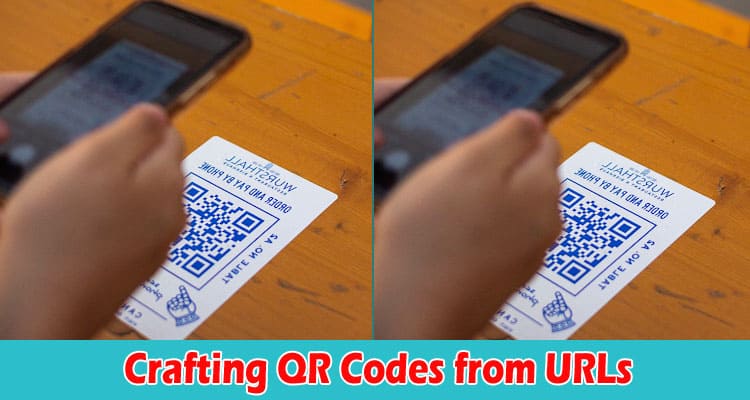The demand for efficient and seamless information sharing has given rise to various technological solutions. One such innovation that has become ubiquitous is the Quick Response (QR) code. These two-dimensional barcodes, when scanned by a smartphone camera, can effortlessly link users to online content. In this article, we will explore the process of create a QR code from URL, shedding light on its significance and applications.
The Basics of QR Code Creation from URL
At the heart of the QR code’s functionality lies its ability to encode information such as URLs. Creating a QR code from a URL is a straightforward process that involves using specialized tools and platforms. To initiate this, individuals can leverage a plethora of online QR code generators. These user-friendly tools allow users to input the desired URL and generate a unique QR code instantly. This method ensures a swift and efficient means of sharing web links, enhancing user experience and engagement.
Preparation for QR Code Deployment
Before delving into the world of QR code generation, it’s essential to ensure the URL is correct and leads to the intended digital destination. Additionally, consider the following factors:
- URL Optimization: Shorten lengthy URLs using URL shortening services to make the QR code visually cleaner.
- Customization: Some generators offer options to customize QR codes by adding colors, logos, or other branding elements for a personalized touch.
- Testing: Always test the generated QR code to guarantee its functionality and accuracy.
Once the QR code is generated, it becomes a versatile tool for diverse applications. Share it on printed materials, business cards, or digital platforms to effortlessly direct users to your online content. As QR codes gained popularity, their applications expanded beyond marketing, finding utility in sectors such as education, logistics, and healthcare.
Applications in Diverse Sectors
The versatility of QR codes is not limited to any particular industry. In the realm of education, institutions leverage QR codes to direct students to online resources or supplementary materials. In logistics, QR codes streamline inventory management and package tracking, providing real-time information with a simple scan. Healthcare professionals utilize QR codes to access patient records swiftly, enhancing the efficiency of medical services.
Tailoring QR Codes for Your Needs
Consider these factors when applying QR codes to your specific industry:
- Content Relevance: Ensure the content linked to the QR code is relevant and adds value to the user experience.
- Analytics Integration: Some QR code generators offer analytics tools to track scan data, providing valuable insights into user engagement.
As technology continues to evolve, the future of QR codes appears promising. With the integration of augmented reality and enhanced data encryption, QR codes are poised to become even more integral to our digital experiences. Emerging technologies like Near-Field Communication (NFC) and advancements in smartphone capabilities further contribute to the evolution of QR codes.
Elevating Your QR Code Experience
In the dynamic world of QR codes, standing out is crucial. Me-QR, a leading brand in QR code solutions, offers a comprehensive platform for creating and customizing QR codes. Their user-friendly interface, coupled with advanced features, empowers individuals and businesses to create visually appealing and functional QR codes effortlessly.
In conclusion, the ability to create a QR code from a URL has revolutionized the way we share and access information. Whether in marketing, education, or logistics, the simplicity and efficiency of QR codes continue to play a pivotal role in enhancing connectivity in our digital world. As you embark on your QR code journey, consider the tips mentioned, and explore innovative platforms like Me-QR to elevate your QR code experience to new heights.







